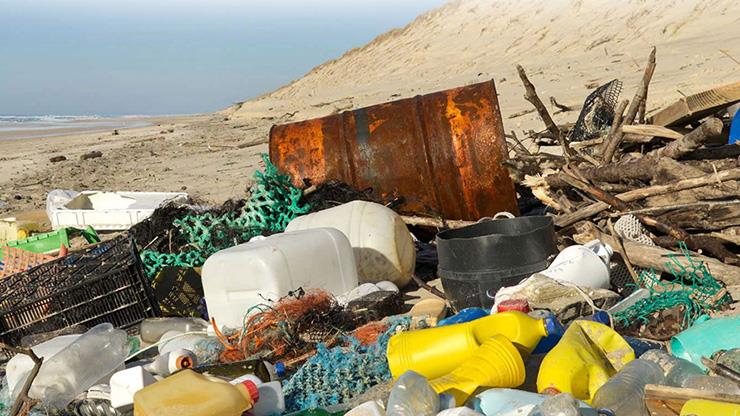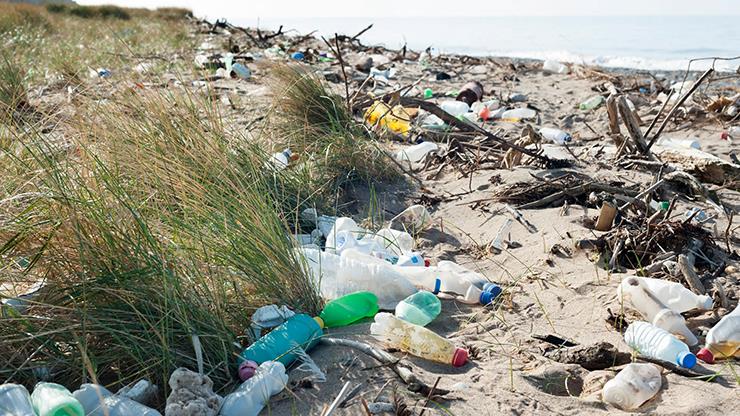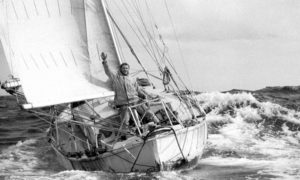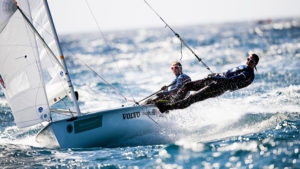How sports industry can tackle plastic pollution

Environment Secretary Michael Gove is calling on sports leaders from across the Commonwealth to join the fight against plastic pollution in the world’s oceans.
As part of the Commonwealth Heads of Government Meeting taking place in London this week, the Environment Secretary is hosting leaders from across the sports sector on board the HMS Belfast in London to drive forward innovation and agree actions to tackle the global scourge of plastic.
Global change
With mass sporting events often generating up to 750,000 plastic bottles and seven tonnes of waste, the Environment Secretary and representatives from Premier League football, swimming and ocean sailing will look at how the sector can use its influence to tackle this blight and bring about global change.
This will build on the work already underway by industry – with this year’s Commonwealth Games banning the use of plastic balloons and rolling out water refills to reduce plastic, and Twickenham Stadium introducing a deposit return scheme for ‘fan cups’, where fans pay an extra £1 for their cup and get the money back when they return it to the bar.
Making great strides
Environment Secretary Michael Gove said: “Plastic pollution is one of the most pressing environmental challenges of our time and we all have a role to play to tackle the threats our oceans face.
“There are few groups which have the global reach and power the sports sector does to inspire change and mobilise action. The industry is already making great strides, and I look forward to seeing how they can build on this progress to be true ambassadors for global change.”
The Prime Minister has announced a £61.4 million package of funding to boost global research and help countries across the Commonwealth stop plastic waste from entering the oceans in the first place.
The RYA and The Green Blue also recently welcomed the news that a Bottle Deposit Scheme will be introduced in England in a bid to reduce the amount of single use waste reaching our seas.
What can we do as boaters?
As boaters, far too many of us have witnessed the huge rise of plastic waste on the seas, shores and harbours. It’s estimated that more than a million birds and 100,000 marine mammals and turtles die every year worldwide from entanglement or ingestion of plastics such as balloons and carrier bags.
The RYA is committed to raising awareness of the scale of the plastic pollution issue and is looking at ways that the boating community can be part of the global marine solution.

Ways to help
• Stamp out single-use plastics by using refillable water bottles and reusable bags
• Buy products with less packaging to reduce carbon footprint
• Always choose products without microbeads
• Ditch the disposables – remove all plastic cups and straws
• Consider more eco-friendly alternatives such as cutlery and rubbish bags made from com-starch, which can be composted
• Use eco-friendly cleaning and personal products to avoid discharging any toxic or harmful liquids into the water
• Take part in year-round beach and shoreline clean-ups
• Find local recycling facilities at www.recycle-more.co.uk
• Don’t throw anything over the side of your boat – including food
• Prevent loose items from blowing overboard
• When carrying out maintenance, use only eco-friendly products and fresh water, and take care that no debris (like paint flecks etc.) ever enters the water
• Download The Green Blue’s handy guides and become a #GreenBlueChampion at www.thegreenblue.org.uk
Organisers will ban the use of plastic straws throughout Cowes Week in a bid to be more environmentally friendly. Cowes Week Ltd, which organises Lendy Cowes Week, has pledged to step up its sustainability initiatives.
The firm already uses a sustainably sourced electricity provider at its base in Regatta House, has a full recycling programme, and has banned single use plastics in the building.
Now it plans to ban plastic straws across the event, offer more water stations for visitors, reduce the use of plastic cutlery, and increase the use of reusable drinking cups.
The event organisers are working closely with The Green Blue, the RYA and British Marine’s Joint environment initiative, and have signed up to the Sailors for the Sea Clean Regattas Programme.
This story is from the RYA.










